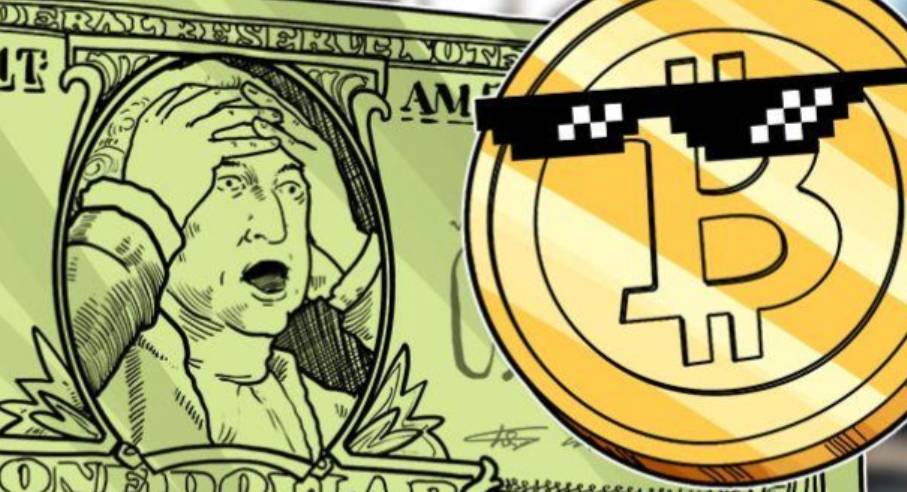- Financial Policy
- December 7, 2024
- (626) comments
Bitcoin Hits $100K: The Next Dollar?
Advertisements
On December 5th, a remarkable milestone was achieved in the world of cryptocurrencies as Bitcoin's price soared past the $100,000 mark, setting a new all-time high. This astronomical increase has left many eager to understand the limits of Bitcoin's potential. The cryptocurrency, often heralded as the future of money, has captivated investors and skeptics alike. The question lingers: what triggered this explosive growth, and where does it lead the digital currency?
This year alone, Bitcoin has experienced a staggering rise, accumulating around 140% in value. However, the most pronounced surge has predominantly occurred over the last two months. At the start of 2024, Bitcoin was trading at approximately $40,000, and after navigating through numerous fluctuations, it was hovering around $68,000 on November 4. In just one month, it skyrocketed to an impressive $100,000.
The momentum seen in Bitcoin's price action is not merely a product of speculative trading; significant developments within the futures markets have also provided a glimpse into this upward trajectory. By the end of November, the Chicago Mercantile Exchange (CME) saw Bitcoin futures break past the $100,000 threshold on two separate occasions within a week, further validating the enthusiasm surrounding this digital asset.
Upon examining the underlying factors contributing to Bitcoin's recent ascent, it's essential to consider the upcoming "halving" event slated for April 2024. This phenomenon, which occurs approximately every four years, reduces the reward for mining Bitcoin transactions. As the block reward decreases to just 3.125 Bitcoins, the resultant supply shock tends to ignite upward price pressure, driven by the enforced scarcity of the asset. Historically, Bitcoin halving events have precipitated significant price increases in the months following the event.

Alongside the technical factors, shifts in market sentiment have played a pivotal role in reshaping the landscape for Bitcoin. Investors have increasingly recognized Bitcoin's potential as a safe-haven asset, with many likening it to "digital gold." In an era characterized by geopolitical turmoil and rising inflationary pressures, Bitcoin's positioning as a hedge against currency devaluation has become more pronounced. This ideological shift augments the asset's allure as a viable alternative amidst traditional market volatility.
Furthermore, institutional demand has been bolstered by burgeoning Bitcoin reserves at the national level, uplifting market optimism within the cryptocurrency space. Notably, the recent appointment of Paul Atkins, a former commissioner of the U.S. Securities and Exchange Commission (SEC) known for endorsing cryptocurrency policies, has been viewed as a catalyst for Bitcoin's historic breach of the $100,000 threshold.
The formalization of Bitcoin Exchange-Traded Funds (ETFs) has also catalyzed a significant influx of institutional capital into the cryptocurrency markets, propelling the overall net asset value to a staggering $103.9 billion. Analysts extrapolate this trend, predicting Bitcoin's price could reach $110,000 by early 2025, with further peaks projected for that year.
As Bitcoin's market capitalization nears $2 trillion, surpassing industry titans like Nvidia, Apple, and Alphabet in valuation, curious minds wonder: could Bitcoin become the next "dollar"? While the rhetoric surrounding this question is compelling, practical indicators suggest otherwise.
One of the foremost challenges Bitcoin faces in asserting itself as a mainstream currency lies in its inherent volatility. The price of Bitcoin is notoriously fickle, demonstrating swings that are simply unsustainable for an asset intended to serve as a stable medium of exchange. Traditional currencies, like the U.S. dollar, maintain a degree of stability to facilitate the assessment of value across goods and services. Should Bitcoin ever formalize its role as a currency, its erratic fluctuations would jeopardize the entire price system for commodities.
This volatility was on full display recently, as market data from Coinglass revealed that almost 200,000 users faced liquidation within the past 24 hours, totaling an aggregated loss of approximately $576 million. The long-term perspective does not assuage concerns, as historical data reveals Bitcoin's price movements have often been extreme, including a staggering increase of 1,317% in 2011, a jaw-dropping 5,428% in 2013, and volatility leading to a 64% crash in 2022, before a robust rebound of 157% in 2023.
Additionally, the dollar's status as the world's primary reserve currency is bolstered by its widespread acceptance across international markets. In contrast, Bitcoin remains gravely outmatched in this regard. The U.S. dollar benefits from a robust backing of national power and is mandated for global trade operations. Currently, Bitcoin's usage in international commerce and consumer transactions is negligible; while several vendors may accept Bitcoin, its overall footprint remains minor. Moreover, Bitcoin's design is rigidly capped at a maximum supply of 21 million units, which impedes its flexibility to adapt to economic changes or macroeconomic policy adjustments.
The decentralized mechanism that defines Bitcoin also invites regulatory challenges. On the one hand, it guarantees a certain level of fairness and has been heralded as a disruptive force against traditional financial systems. Yet, this very decentralization has facilitated crime, including money laundering and fraud. Consequently, while some nations and markets may celebrate Bitcoin's unique attributes, no formidable state is likely to endorse its adoption as a mainstream currency.
Rather than positioning Bitcoin as a potential successor to the dollar, it may be more fitting to recognize it as an asset akin to gold, particularly among a growing faction of investors who appreciate its investment properties. Despite its nomenclature as a "currency," Bitcoin is increasingly viewed through the lens of an investment vehicle. As previously noted, its role as a hedge against uncertainty is gradually garnering mainstream acceptance, indicating an evolving narrative regarding the future of Bitcoin in global finance.